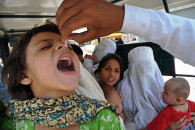Three strikes, you’re out: Musharraf ordered to appear on Jan 16
Neither did he have a heart attack, nor is he unable to attend hearings: court.

Neither did the accused suffer a heart attack nor is his health suffering to such an extent that he is unable to appear before court, the order stated. DESIGN: FAIZAN DAWOOD
Third time was not the charm for former president Pervez Musharraf. After being ‘excused’ from court three times for health reasons, the special court on Thursday summoned him on January 16. After a brief hearing of 45 minutes, the three-judge special court led by Justice Faisal Arab – in a hard-hitting order – decided to call Musharraf to court next week.
The decision was taken after a careful review of Musharraf’s medical report, which seemed to have ruined the plans of the former military ruler’s legal team for a route out of the country for treatment. “The medical report does not suggest that the accused, in his present state of health, is unable to attend the court, nor any material was placed on record to justify his inability to appear,” the court order stated.
The special court in its written order held: “It is clear that the accused has failed to obey and comply with the order of this court.”

The reason given for Musharraf’s absence on January 2 was that he had suffered a heart attack on his way to the court and had no option but to head towards the Armed Forces Institute of Cardiology (AFIC). In the medical report, it is stated that the accused reported discomfort in his chest and left arm. This could have been taken to be a heart attack, angina pain, or any other kind of heart ailment, but it turned out to be a false alarm.
Neither did the accused suffer a heart attack nor is his health suffering to such an extent that he is unable to appear before court, the order stated. “We may point out that the court has condoned the absence of the accused three times before solely on the ground that he was hospitalised. This was done in spite of the fact that neither any application for exemption from appearance was made nor verbally requested on behalf of the accused. This court was constrained to call for the medical report of the accused from the AFIC.”
During the seventh hearing of the case on Thursday, Musharraf’s legal team submitted a list of bureaucrats, judges and politicians who opted to go abroad for treatment on state expenses. Sharifuddin Pirzada, head of Musharraf’s legal team, also objected to how privacy was breached and Musharraf’s medical report was made available to the media, most probably by the prosecution.
Pirzada read certain portions of the report and reiterated that his client is suffering from heart disease and an angiography has been advised. He contended that for undergoing such medical procedure, it is quite possible that an open-heart surgery could be required and it would be within his client’s rights to seek the best possible treatment, even if it means to go abroad.
He argued that Prosecutor Akram Sheikh, too, travelled to the United States and Singapore for his treatment, then how can he question this basic right in Musharraf’s case. Sheikh denied this and said that he postponed his treatment because of this high-treason case.
On the other hand, Sheikh contended that although it is suggested in the medical report that angiography may be required, the accused has not undergone any such treatment despite being admitted in a leading hospital. He further said that the medical report nowhere suggests that the accused is unable to appear before court. The presence of the accused is required at the hearing to read out the charge and record his plea – the process may last only an hour. Thereafter, the proceedings can take place in his absence via his counsel, he explained to the bench.
Talking to the media outside the National Library, Sheikh said it was sad to see a former head of the reputed army to run away from trial. However, Musharraf’s advocate Ahmed Raza Kasuri rejected the claims and said the former president needed more time to rest and recover. He stressed that Musharraf’s health condition was serious.
Published in The Express Tribune, January 10th, 2014.



















COMMENTS
Comments are moderated and generally will be posted if they are on-topic and not abusive.
For more information, please see our Comments FAQ